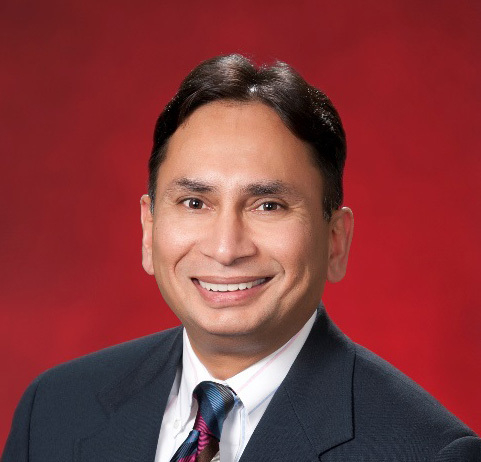Centennial Hills Hospital offers procedure to combat reflux disease
People with gastroesophageal reflux disease know the symptoms all too well — heartburn, regurgitation, chest pain and trouble sleeping or swallowing. Those who turn to Dr. Pankaj K. Bhatnagar for help in managing their symptoms now have a new option: Transoral Incisionless Fundoplication.
The incisionless procedure is performed at Centennial Hills Hospital, 6900 N. Durango Drive, by Bhatnagar, better known to his patients as Dr. P.K.
“There’s a group of people who don’t want to take medicines all of their lives,” he said. “Traditionally, we used to do surgery and put some incisions and go in the stomach to prevent heartburn. Now we have a new alternative — we can do the same operation without any cuts.”
Gastroesophageal reflux disease, or GERD, is an abnormally frequent or chronic reflux. Acid reflux occurs when stomach fluids back up, or reflux, into the esophagus, exposing it to gastric acid, according to Bhatnagar.
Bhatnagar uses the EsophyX Device to reconstruct the anti-reflux valve and restore the body’s natural protection against reflux. The procedure is performed from within the gastrointestinal tract with the device inserted through the patient’s mouth.
“Like any other surgery, it has its complications,” Bhatnagar said. “In a few percentages, it doesn’t work, but it’s very rare.”
The procedure lasts about an hour and is performed under general anesthesia. Patients are asked not to eat or drink for several hours before the procedure.
People with GERD often experience gas, bloating and an intolerance of certain kinds of foods and liquids. The disease is caused by anatomic changes in the body’s natural antireflux barrier, the gastroesophageal valve.
Mario Paonessa underwent the TIF procedure in September. He recalls getting heartburn regularly when he was 13, but he thought it was caused by hunger. As the years went by, his symptoms became progressively worse.
“I started having symptoms when I was sleeping at night,” Paonessa said. “I’d have to run to the restroom with a mouthful of acid, and my throat would feel like it was on fire. Over the last couple of years, I started feeling like the prescriptions I was taking were keeping me from digesting my food properly, and my stomach would feel boated for long periods of time.”
Typically, after swallowing, the valve between the esophagus and stomach opens to allow food to pass and then closes to prevent stomach contents from refluxing into the esophagus. Genetics, weight, diet, aging and injuries to the upper chest can disrupt normal function of the gastroesophageal valve, resulting in abnormal exposure to acid reflux.
While eliminating certain foods and drinks, sleeping in a chair or taking medicines can relieve GERD, Bhatnagar recommends TIF to those who are tired of or concerned about the effects of taking medication.
After the procedure, patients stay overnight for monitoring and may experience some discomfort in their stomach, chest, nose and throat for three to seven days.
Paonessa said that after his procedure, his chest felt sore for a few days.
Patients reported an 80 percent improvement in their quality of life and reduction or elimination of heartburn symptoms, according to a two-year study conducted by EndoGastric Solutions, a medical technology company that develops incisionless transoral procedures.
Bhatnagar said the procedure may result in less dependency on medication and tolerance to most foods and liquids.
“I feel like a normal person,” Paonessa said. “It’s just a relief to not be dependent on a prescription or have to stop what you’re doing to chase down some anti-acid chew tablets at the convenience store.”
For more information, visit tinyurl.com/pexddcd.
Contact North View reporter Sandy Lopez at slopez@viewnews.com or 702-383-4686. Find her on Twitter: @JournalismSandy.


















